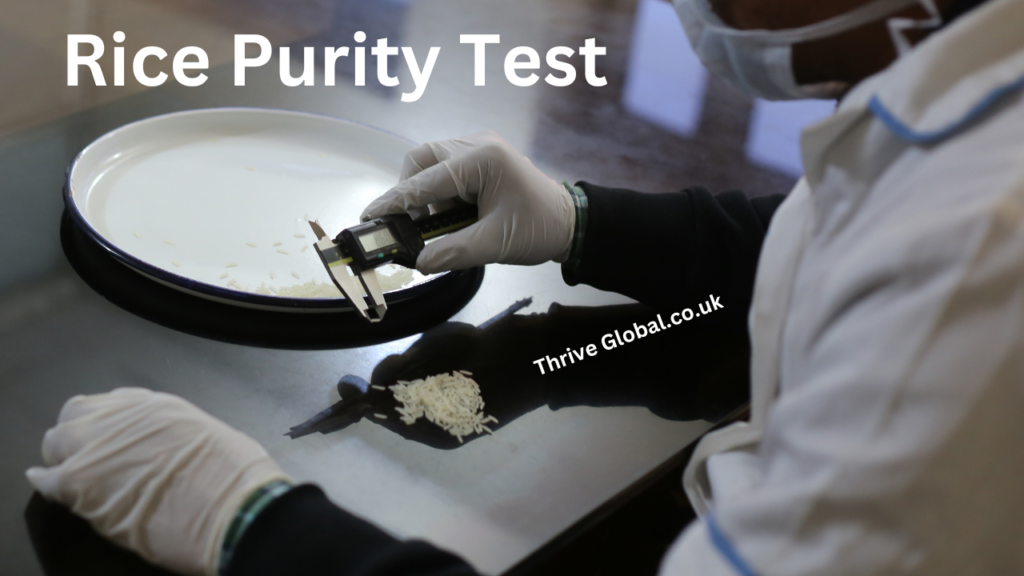The Rice Purity Test is a self-assessment tool that originated at Rice University, designed to gauge the life experiences of individuals. While initially used as an icebreaker among college students, its reach has extended far beyond, attracting a diverse audience curious about how their experiences compare to a broad set of societal norms.
History of the Rice Purity Test
Origins of the Rice Purity Test
The Rice Purity Test was first introduced in the early 1980s at Rice University in Houston, Texas. It was created as part of a light-hearted attempt to foster camaraderie among students, allowing them to share personal experiences in a humorous and non-judgmental setting. The test consists of 100 questions that cover a wide range of activities and behaviors, aiming to measure one’s “purity” based on their responses.
Evolution over the Years
Over the years, the test has evolved in its format and use. Initially shared through physical copies, the digital age has facilitated its widespread availability online. The ease of access and the anonymity of the internet have significantly increased its popularity, allowing it to become a viral phenomenon. Despite its humorous undertone, the test has sparked conversations about societal norms and personal boundaries.
Purpose and Use of the Rice Purity Test
Understanding the Test’s Purpose
The primary purpose of the Rice Purity Test is to serve as an icebreaker and a means for individuals to reflect on their life experiences. It provides a playful yet insightful look into one’s past actions and choices. The test covers a broad spectrum of activities, from the mundane to the more provocative, encouraging self-reflection and sometimes surprising revelations.
How the Test is Used Today
Today, the Rice Purity Test is used by various groups beyond its original college audience. It is often taken for fun at social gatherings, shared on social media platforms, and even used in psychological studies exploring human behavior and socialization patterns. The test’s versatility in application highlights its enduring appeal.
Structure of the Rice Purity Test
Breakdown of Questions
The Rice Purity Test comprises 100 questions, each corresponding to a specific activity or experience. The questions are framed in a yes-or-no format, making it easy for participants to quickly answer and tally their scores. The simplicity of the structure contributes to its broad appeal.
Categories Covered
The questions in the Rice Purity Test span various categories, including but not limited to romantic and sexual experiences, substance use, legal infractions, and social behaviors. This wide range of topics ensures that the test covers many aspects of life, providing a comprehensive overview of an individual’s experiences.
Also Read: Soap2day: Everything You Need To Know About
Analyzing the Results
Interpreting Scores
Upon completion of the Rice Purity Test, participants receive a score ranging from 0 to 100. A higher score indicates a higher level of “purity,” meaning fewer of the listed experiences have been undertaken. Conversely, a lower score suggests a higher number of experiences checked off the list.
What Different Scores Mean
Scores on the Rice Purity Test are open to interpretation and often viewed in the context of the individual’s social and cultural background. A high score might reflect a more sheltered lifestyle, while a lower score could indicate a more adventurous or experienced past. It’s important to remember that the test is designed for entertainment and self-reflection rather than judgment.
Cultural Impact of the Rice Purity Test
Influence on College Campuses
The Rice Purity Test has had a significant cultural impact, particularly on college campuses where it originated. It serves as a rite of passage for many students, fostering a sense of community and shared experience. The test also opens up dialogues about personal boundaries and societal expectations.
The Test in Popular Culture
Beyond academic settings, the Rice Purity Test has permeated popular culture. It has been referenced in movies, television shows, and online media, often highlighting its role in exploring and challenging societal norms. The test’s enduring presence in popular culture underscores its relevance and adaptability.
Psychological Implications
Impact on Self-Perception
Taking the Rice Purity Test can have varying psychological effects on individuals. For some, it offers a moment of introspection and self-awareness, while for others, it may evoke feelings of nostalgia or even regret. The test can also influence how individuals perceive their past decisions and experiences.
Social Implications
Socially, the Rice Purity Test can affect group dynamics and relationships. It may lead to bonding over shared experiences or, conversely, highlight differences in life choices. The test’s results can sometimes challenge preconceived notions about peers, fostering greater understanding and empathy.
Controversies Surrounding the Test
Criticisms and Concerns
Despite its popularity, the Rice Purity Test is not without its criticisms. Some argue that it promotes a narrow view of purity and can be judgmental. Others contend that the test’s focus on specific experiences might not accurately reflect an individual’s character or values.
Ethical Considerations
Ethically, the test raises questions about privacy and consent. While it is typically taken voluntarily, the sharing of results can lead to unintended consequences, such as social pressure or embarrassment. It’s important to approach the test with sensitivity and respect for others’ boundaries.
Comparisons to Other Similar Tests
Other Purity Tests
The Rice Purity Test is one of many similar assessments designed to gauge life experiences. Other tests, such as the “Virginity Test” or “Innocence Test,” share a similar format but may focus on different aspects of behavior and experiences.
Differences and Similarities
While these tests share commonalities, the Rice Purity Test is unique in its comprehensive and inclusive approach. It covers a broader range of activities, making it more relatable to a wider audience. However, all such tests should be taken with a grain of salt, recognizing their limitations and potential biases.
Personal Experiences and Anecdotes
Stories from Test Takers
Many individuals who have taken the Rice Purity Test share humorous or insightful stories about their experiences. These anecdotes often highlight the test’s role in fostering candid conversations and creating memorable moments.
Personal Reflections
Reflecting on one’s Rice Purity Test results can be a deeply personal experience. Some may find it validating, while others may see it as an opportunity for growth and change. Ultimately, the test serves as a mirror to one’s past, offering a unique perspective on life choices.
Conclusion
Summary of Insights
The Rice Purity Test remains a fascinating and enduring tool for self-reflection and social interaction. Its history, structure, and cultural impact underscore its significance in exploring human behavior and societal norms. While it has its criticisms, the test continues to be a popular and engaging way to spark meaningful conversations.
Future of the Rice Purity Test
As society evolves, so too will the Rice Purity Test. Its ability to adapt to changing cultural landscapes ensures its continued relevance. Whether as a nostalgic rite of passage or a playful exploration of personal history, the Rice Purity Test will likely remain a staple in the tapestry of social interactions.
Also Read: How to Convert YouTube To MP3 in Minutes!
FAQs
What is the Rice Purity Test?
The Rice Purity Test is a self-assessment tool consisting of 100 questions designed to measure an individual’s “purity” based on their life experiences.
How is the Rice Purity Test scored?
Participants receive a score from 0 to 100, with higher scores indicating fewer life experiences listed in the test and lower scores indicating more.
What is the purpose of the Rice Purity Test?
Originally designed as an icebreaker for college students, the test now serves as a fun and reflective tool for individuals to gauge their life experiences.
Is the Purity Test Rice accurate?
The test is intended for entertainment and self-reflection rather than as an accurate measure of one’s character or life choices.
Can the Rice Purity Test be taken online?
Yes, the Purity Test Rice is widely available online and can be taken anonymously.
Why is the Rice Purity Test controversial?
Critics argue that the test promotes a narrow view of purity and can be judgmental, while ethical concerns include issues of privacy and consent.



